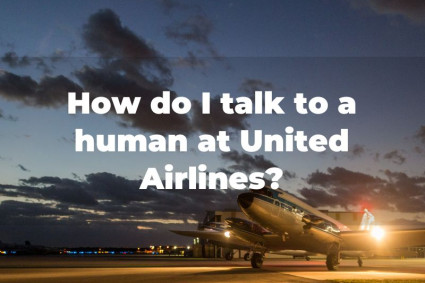Don’t They Know How to Behave in Another Country? A Guide to Cultural Intelligence for the Modern Traveller
We’ve all seen them, or at least heard the stories. The loud group on the metro, oblivious to the silent commute of the locals. The tourist haggling aggressively in a fixed-price boutique. The sunburned visitor wearing culturally insensitive attire in a sacred space. It’s easy to point, whisper, and think, “Don’t they know how to behave in another country?”
But before we don the cloak of superiority, it’s worth asking a more compassionate question: Why don’t they know? And more importantly, how can we ensure we are never the subject of those same judgmental whispers?
The journey to becoming a culturally intelligent traveller begins long before you board the plane. It starts with a shift in mindset: from being a passive tourist to an active, respectful guest. This foundational attitude informs every interaction, from how you navigate a new city's transport to how you engage with its people. For instance, upon arriving in a new place, your first point of contact is often a driver. Researching local customs for this simple interaction is key; knowing whether it's standard to sit in the front or back, or the etiquette around tipping, can set the tone for your entire trip. A simple online search for services like Taxi Glasgow will not only get you from A to B but also present an opportunity to ask a local driver for their personal tips on dos and don'ts, a priceless resource often overlooked.
The Root of the Problem: It’s Not Always Malice
Most travellers don’t set out to be disrespectful. The faux pas usually stem from one of three places:
Ignorance and Lack of Research: In our busy lives, a holiday can sometimes be a last-minute escape. We pack our bags but forget to pack knowledge about local customs, dress codes, or basic greetings. We assume that our way of life is the universal default.
Cultural Myopia: This is the unconscious belief that one's own culture is the central and most important one. It leads to measuring and judging another culture solely by the values and standards of one's own. Something considered polite at home, like a firm handshake or direct eye contact, can be offensive elsewhere.
The "Bubble" Effect of Tourism: Resorts, cruise ships, and organised tours can create a sanitised, insulated version of a country. This bubble shields visitors from authentic local life and often fails to educate them on how to behave outside the resort gates.
How to Be a Guest, Not a Tourist: A Practical Guide
Moving from the problem to the solution is where the magic happens. Transforming your travel style is easier than you think and infinitely more rewarding.
1. Do Your Homework (Beyond the Best Restaurants)
Before you go, dedicate a few hours to genuine research. Don’t just look at attractions and food blogs. Delve deeper:
Basic Etiquette: Learn a few key phrases: "Hello," "Thank you," "Please." Is bargaining expected? Is it rude to show the soles of your feet? Is public drunkenness frowned upon?
Dress Codes: Understand the cultural norms around clothing, especially for visiting religious sites. Carrying a lightweight scarf or sarong is a simple way to ensure you’re always prepared to cover your shoulders or knees.
Tipping Culture: This is a major source of anxiety and can be wildly different from country to country. Know what’s expected in restaurants, for taxis, and in hotels.
2. Observe and Adapt
Your most powerful tool is your power of observation. When you arrive, spend your first few hours watching how locals interact.
How do they queue for the bus?
How do they greet each other?
What’s the general volume of conversation in a café?
Mimic this behaviour. When in Rome, do as the Romans do—it’s a cliché because it’s true.
3. Practice Humility and Patience
You will make mistakes. It’s inevitable. When you do, apologize gracefully. A simple, sincere "I'm so sorry, I'm still learning" disarms most situations. Remember, you are a visitor. Things will work differently, and often slower, than you’re used to. Embrace the pace instead of fighting it. Your blood pressure will thank you.
4. Choose Your Travel Services Wisely
The companies you patronise can greatly enhance your cultural understanding. Opt for services that pride themselves on local knowledge and professionalism. For the traveller who values a seamless and informed experience from the moment they land, considering a premium service like Glasgow Chauffeur Hire can be a game-changer. A professional chauffeur is often a fount of local knowledge, able to offer nuanced advice on etiquette, recommend off-the-beaten-path gems that respect local communities, and provide context to the things you see out the window. This isn’t just about luxury; it’s about accessing a layer of cultural insight that is often missing from standard travel.
5. The Golden Rule: The Platinum Rule
We all know the Golden Rule: treat others as you would like to be treated. But for the global traveller, the Platinum Rule is superior: Treat others as they would like to be treated. This requires empathy, observation, and a willingness to step outside your own cultural framework. It means understanding that your way is not the only way, and certainly not always the right way in someone else’s home.
The Reward of Respectful Travel
When you make the effort to understand and respect the culture you’re visiting, the destination opens up to you in ways you never thought possible. Locals appreciate the effort, however small, and are often more welcoming and willing to share hidden aspects of their culture. You move beyond the transactional nature of tourism and into the realm of genuine human connection.
You cease to be an outsider looking in and become an honoured guest invited to share in a different way of life. You return home not just with souvenirs and photos, but with expanded horizons, new perspectives, and the quiet confidence that you left a positive impression in your wake. And that is the mark of a true traveller.
So the next time you see someone struggling to navigate another culture, instead of judgment, perhaps offer a little grace—and lead by example. The world becomes a kinder, more connected place one respectful traveller at a time.





